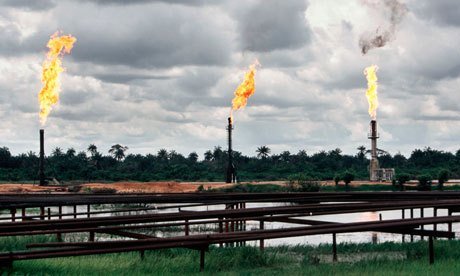make case for non-payment for gas emission, gas flaring
The International Oil Companies (IOCs) have yet to start paying for their carbon emission through gas flaring as stated by the Petroleum Industry Act 2021 as they make case for the removal of the clause.
IOCs reason that penalizing them for gas flaring was not the best thing to do, rather they should be encouraged to convert and utilise gas locally and for export to grow the economy.
Making a case for the removal of penalties from the Act, at the 2022 Nigeria Oil and Gas conference in Abuja recently, the Managing Director, TotalEnergies Exploration and Production Nigeria Limited, Mike Sangster, said they are doing all that is necessary to reduce carbon emissions from gas flaring.
Sangster said, “I don’t think penalties are the answer to reducing gas flaring. Likewise we have a very active programme at the company to reduce carbon footprint.
“So every month we are looking at our fuel gas consumption, we are looking at emissions and also looking at ideas and ways that we can drive down on carbon emissions. Therefore I don’t think penalties are the way to go.
“I think we have to make good business sense and I agree to the transition towards more gas development. We will maximise our oil production for sure, but I think we all want to move towards more gas for the domestic market and also for export.
“So anything that can be done to facilitate the demand for gas is encouraging. And I know there is an idea to move at some point towards a willing-buyer willing-seller model in the PIA.”
However, an environmentalist, Franklin D. Magada, founder of Ecoh Monitors of the Niger Delta, said, “It’s disheartening and mind-boggling to hear that an international oil company like TotalEnergies Exploration and Production Nigeria Limited, through its managing director, Mike Sangster, is opposed to the gas flare penalties contained in the Petroleum Industry Act 2021.
“The IOCs are preempting something that Nigerians, especially the Niger Delta people who bear the brunt of gas flare health hazards, should stand up and defend their environment and its laws, especially the Petroleum Industry Act 2021, which should be complied with by the oil companies operating in the region.
“It’s not a foreign practice for polluters to pay, especially in the case of gas flare. The Polluters’ Pay Principle (PPP) is an international environmental law that has been gradually incorporated into international climate change law (Kodolova & Solntsev, 2020) and is operated all over the world.
“I am surprised that an international oil exploration and production company like TotalEnergies is opposed to it in Nigeria and will, in another breath, succumb to it in their international operating fields in France.”
Magada said the Polluters Pay Principle (PPP) contained in the Petroleum Industry Act 2021, Sections 52 (7d), 104 (4













